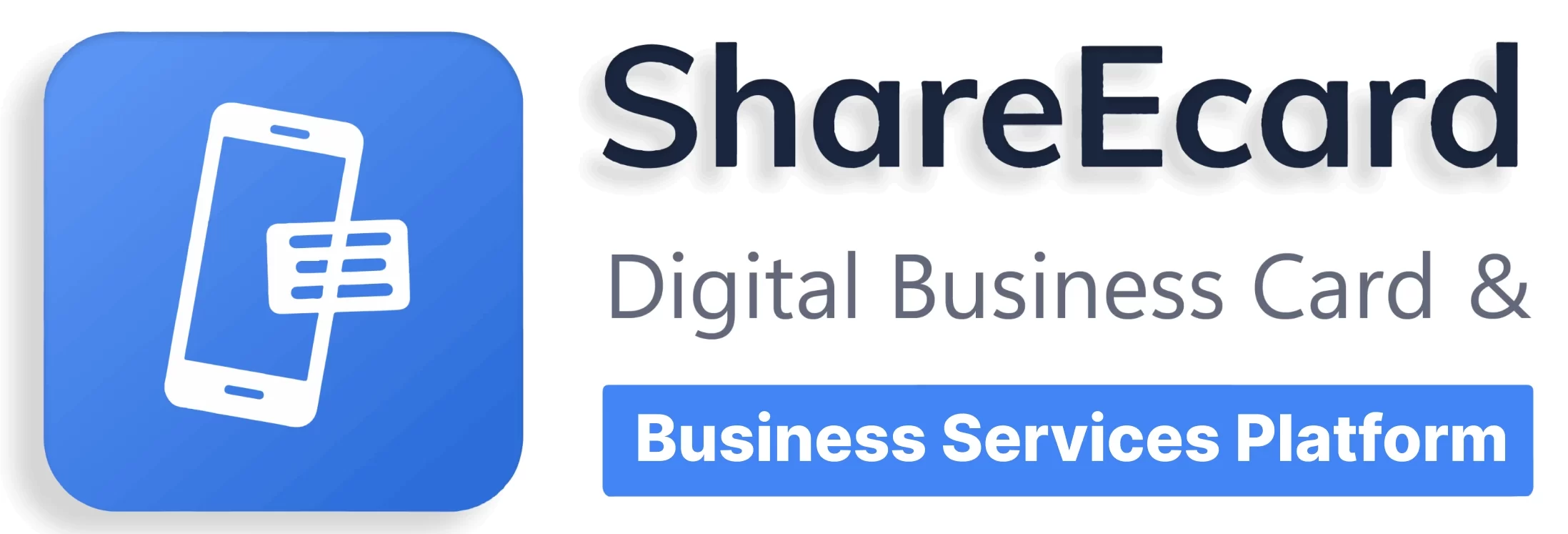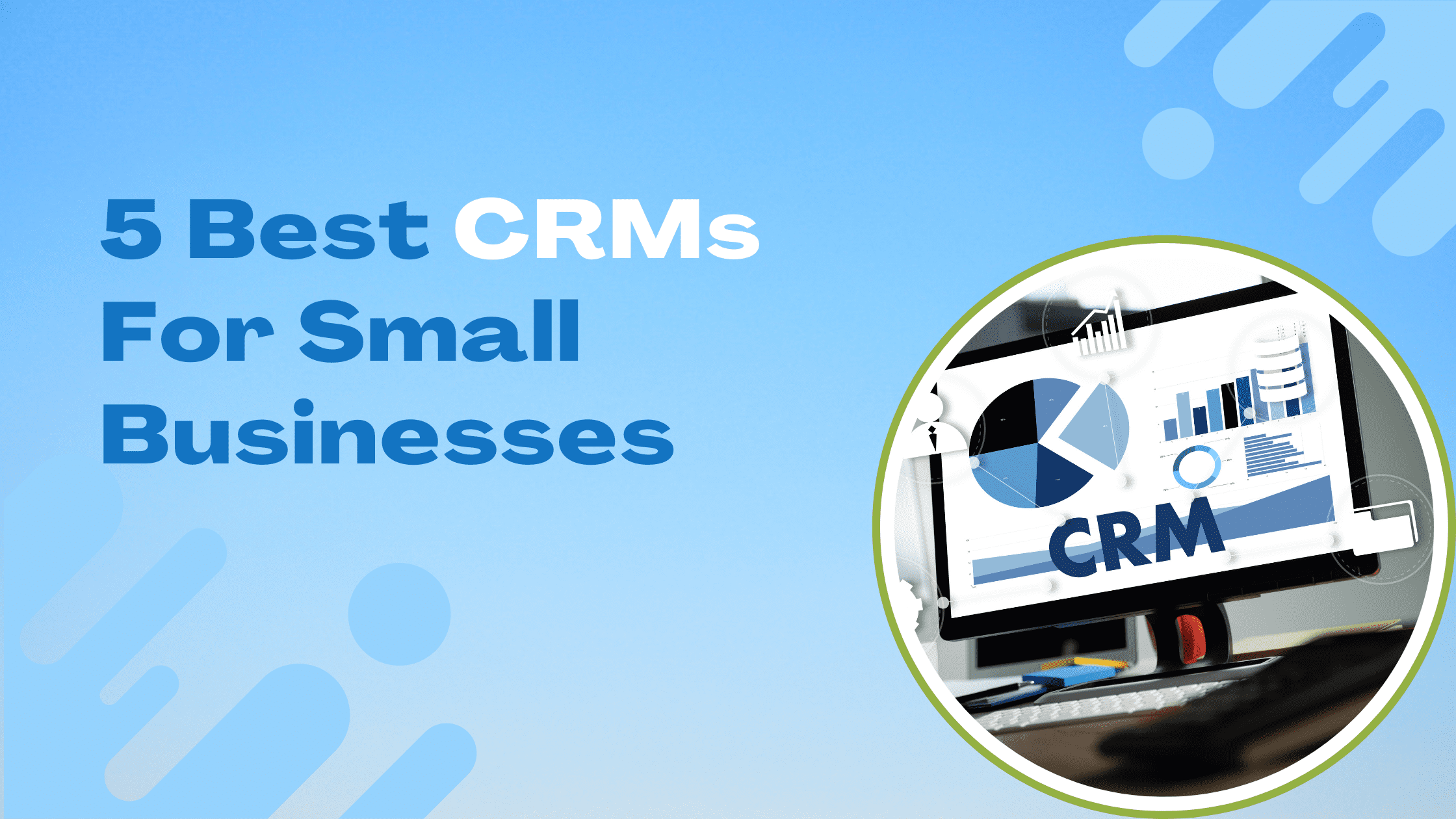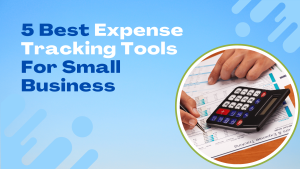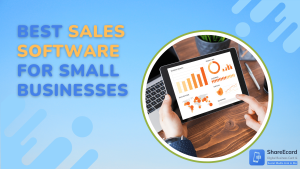Maintaining strong customer relationships is crucial for success in today’s competitive business landscape. Small businesses, in particular, often face resource constraints that demand efficient customer relationship management (CRM) tools.
These software solutions streamline interactions, automate processes, and nurture customer loyalty. This article will explore the top CRM options for small businesses, highlighting their key features, pricing models, and pros and cons.
Here are some of the best CRMs for small businesses-
1. VTiger
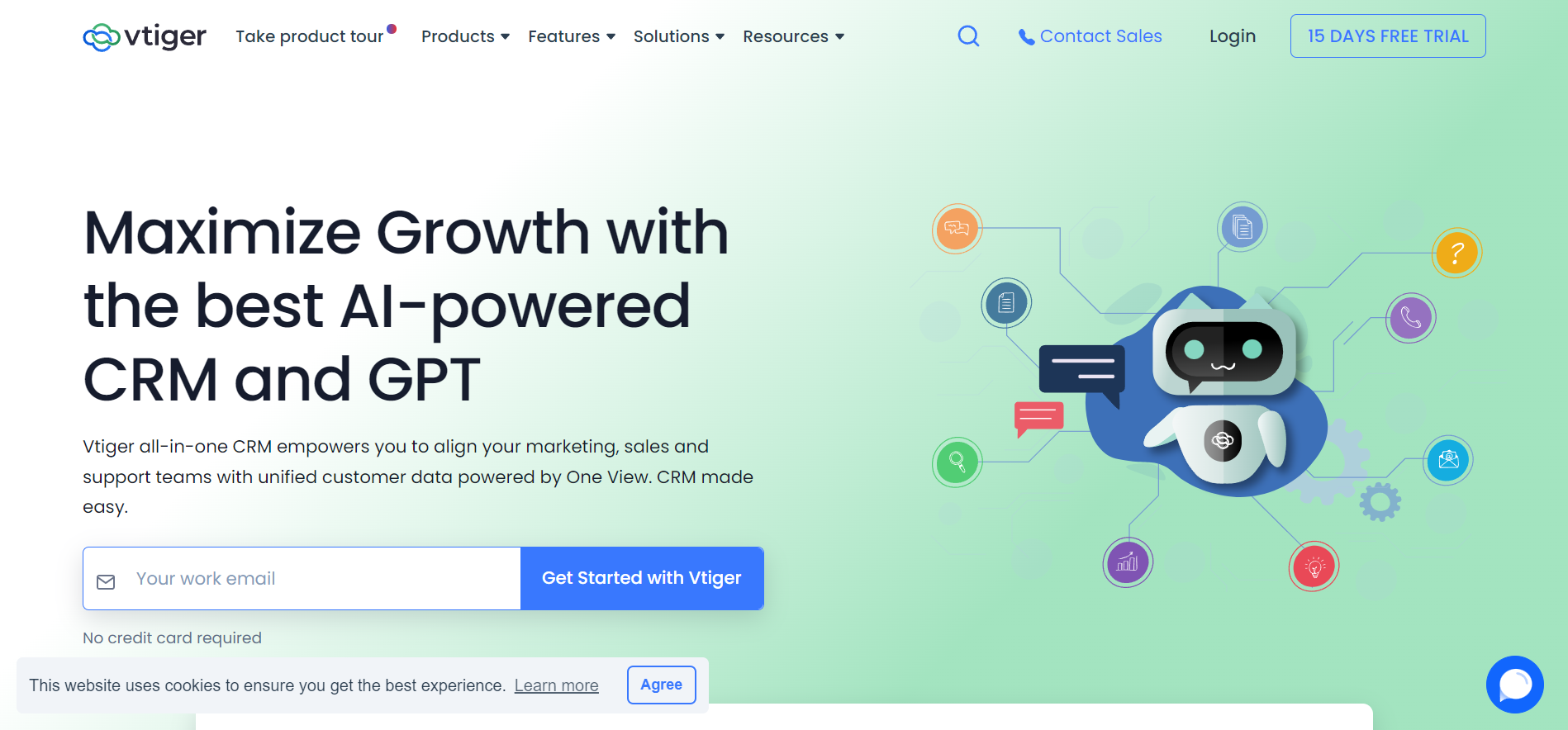
We kept VTiger on the top of the list of best CRM for small businesses. This software will help inventory, marketing, organizing, project management, help desk, and more.
The interface might be cluttered, but VTiger kept everything clean. An individual can quickly jump to other tabs by tapping the hamburger icon.
Features
- Quick contact addition with a short form for efficient multitasking.
- Main contact page for adding detailed information at a later time.
- Visual pipeline on the sales screen to monitor deals’ progress.
- Detailed information about each value and its connected data.
- Help desk screen to track open customer cases and offer live chat support.
- Option to create a custom FAQ section for the support team.
- Email marketing screen for building campaigns and autoresponders
Pricing
Well, every pricing tier has two user types. The admin users will have privileges across all the features. The professional standard plan starts at $30 per month. However, if you have more employees and want a limited set of features, you must pay $20 per month.
Pros
- Comprehensive features
- Customization options
- Open source option available
- User-friendly interface
- Integration capabilities
- Affordable pricing
Cons
- Steeper learning curve
- Limited customer support
- Occasional performance issues
- Resource intensive
- Mobile app limitations
- Overwhelming for small businesses
2. Flowlu
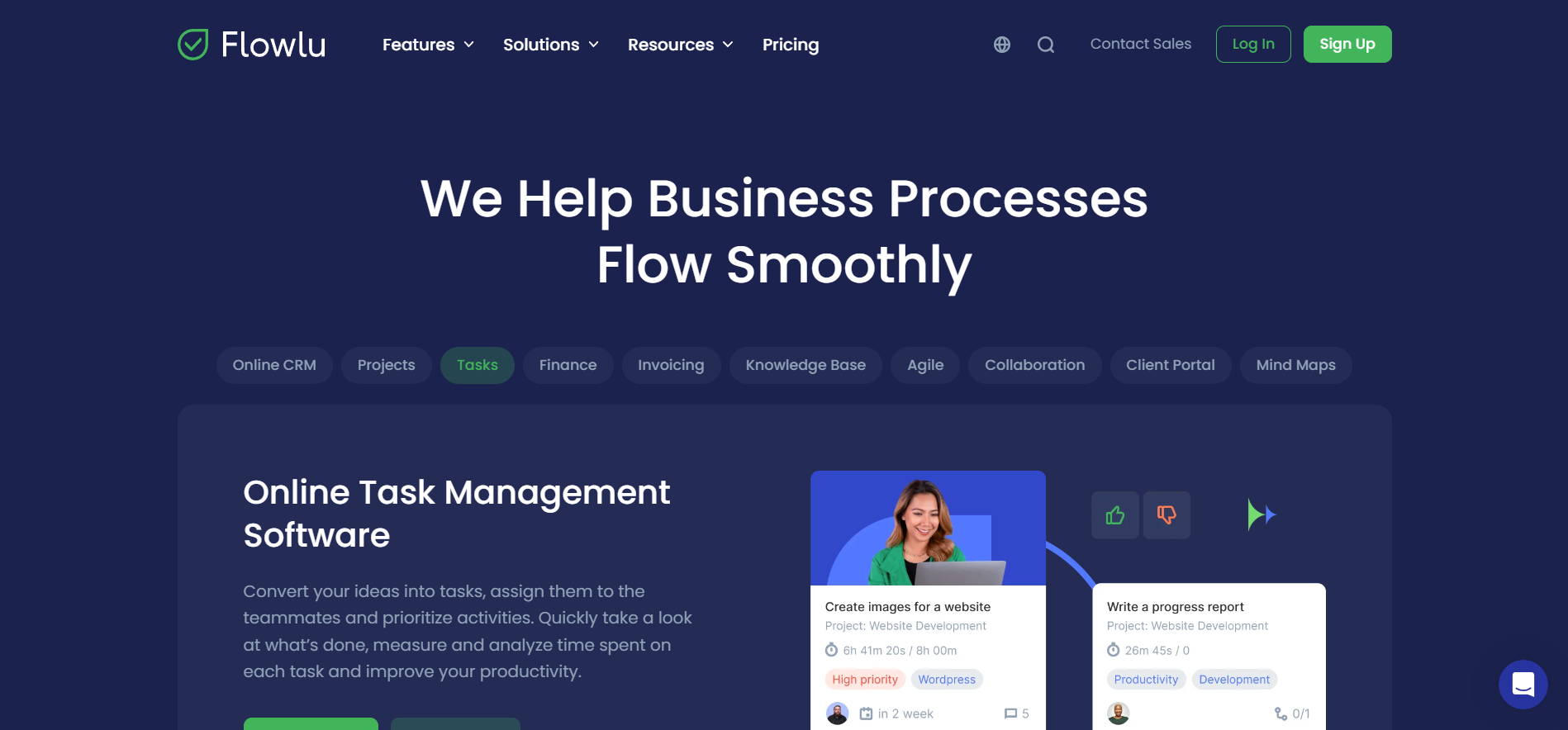
Flowlu comes up with a decent price, especially when your business has at least eight people working. The platform has a clean user interface with a clean onboarding list, which combines sales processes, collaboration client portals, financial features, and knowledge bases.
When you log in, you will see a lot of messages in your feed. You can run an announcement or poll there to connect with everyone easily. The easy navigation process will take you anywhere you want within just 2 or 3 clicks.
Features
- Contact and sales management with a filterable list view for activities
- Organize work and track team performance
- Set automation for each stage of the sales pipeline
- Streamlined project management
- Connect projects with relevant contacts
- Centralized information for easy access
Pricing
Flowlu is also offering a free plan with limited features. While the premium plan starts at $39 per month for eight people, it costs around $4.87 per user. If you have 25 people, you can opt for an enterprise plan with all premium features at $199 per month.
Pros
- Comprehensive contact and sales management
- Filterable list view for organized work
- Automation capabilities for efficiency
- All-in-one platform for project management
Cons
- Steep learning curve
- Complex setup
- Higher cost
- Limited mobile experience
- Integration limitations
3. Zoho
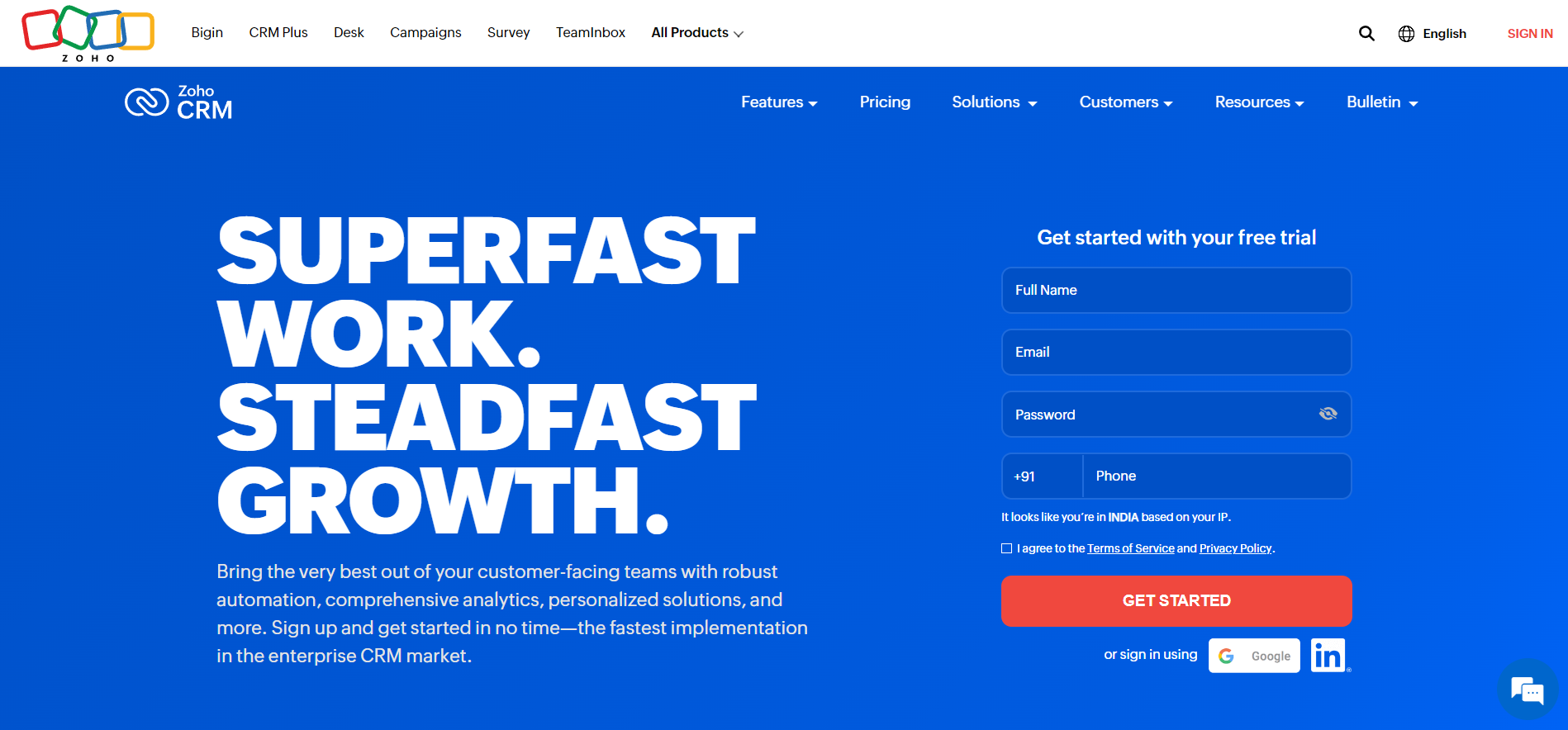
Zoho is another popular CRM that can manage your workload seamlessly and reduce your overall workload. Well, the user interface is not as appealing as its competitors, but it is still a good choice for everyone.
Unlike sales, it offers email marketing and company activity feed to improve communication. You can also track your projects by integrating Zoho projects, letting you access all of your tasks from the CRM dashboard after completing the configuration.
Features
- Robust features with comprehensive contact and sales management
- Email marketing integration
- Company activity feed for improved team communication
- Self-service portals for customers
- Help desk features
- Automatic lead scoring
- Seamless integration with Zoho Projects for project tracking
- Integration with dozens of other Zoho apps
Pricing
Zoho offers different plans for individuals. The lowest plan starts at $20 per month, the professional plan costs $35 per month, the enterprise plan costs $50, and the ultimate plan costs $65 per month.
Pros
- Robust features for contact and sales management
- Integration with email marketing and company activity feed
- Self-service portals and help desk features
- Automatic lead scoring
Cons
- Less appealing user interface compared to some competitors
4. Capsule
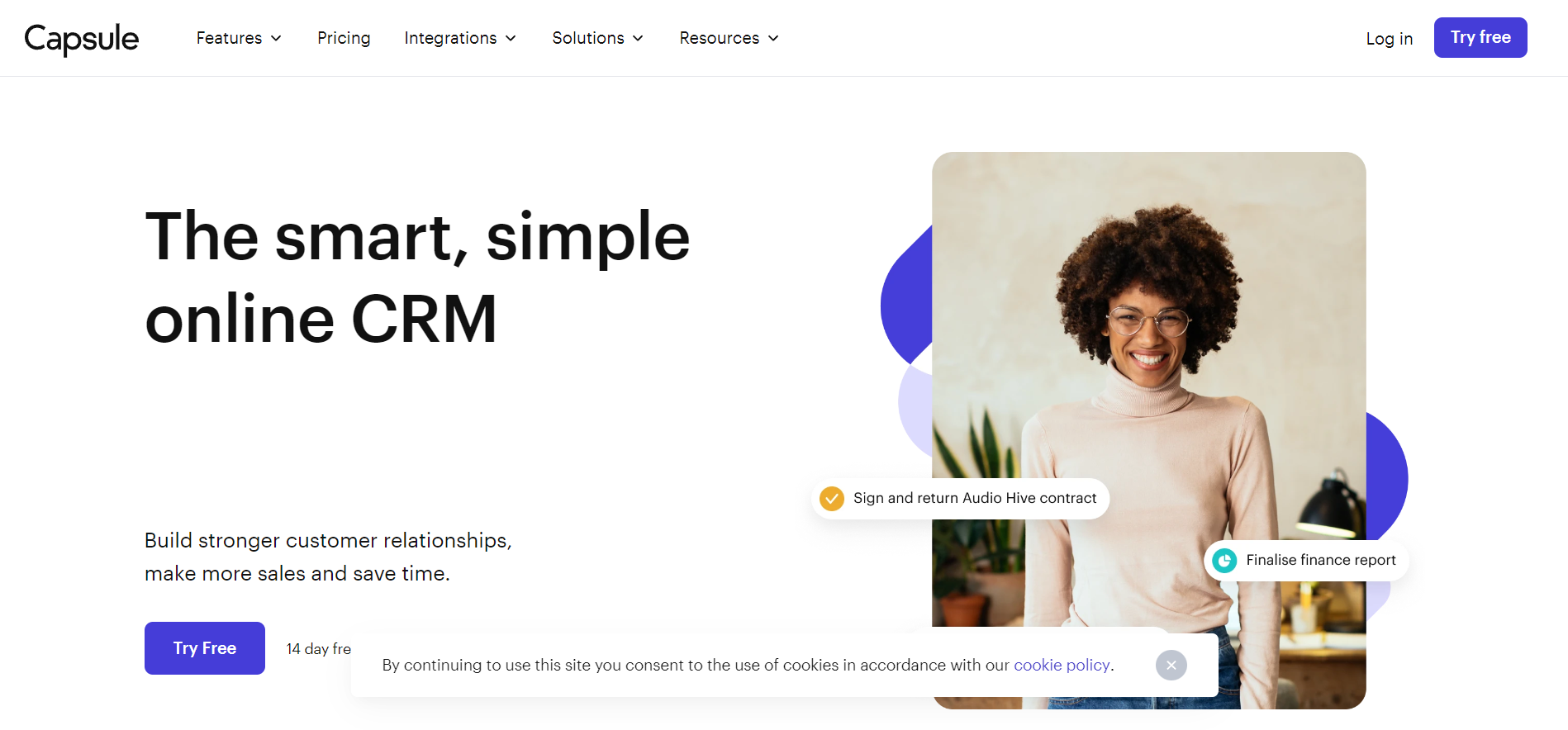
Capsule is another popular CRM that combines with a project management app. Unlike other platforms, they also understand that the user interface should be clutter-free; the app dashboard will be easy to understand and entirely under your control.
Here you can add files easily and assign them to anyone you want. You can move to the dashboard and check everything easily, such as the latest activity, total calls, and daily updates.
Features
- Reports to identify productivity issues and task durations
- General sales pipeline data for insights
- Identify team members facing project challenges
- Integration with Zapier for seamless data transfer
- Customizable workflows for efficient project management.
Pricing
Their lowest plan is $18 per month, the team plan is $36 per month, and the enterprise plan is $54. The features will be available as per plans.
Pros
- Reports for spotting productivity problems
- General sales pipeline data for insights
- Helps identify team members needing assistance
- Integration with Zapier for data transfer
- Customizable workflows for efficient project management
Cons
- No free plan is available
5. Freshsales
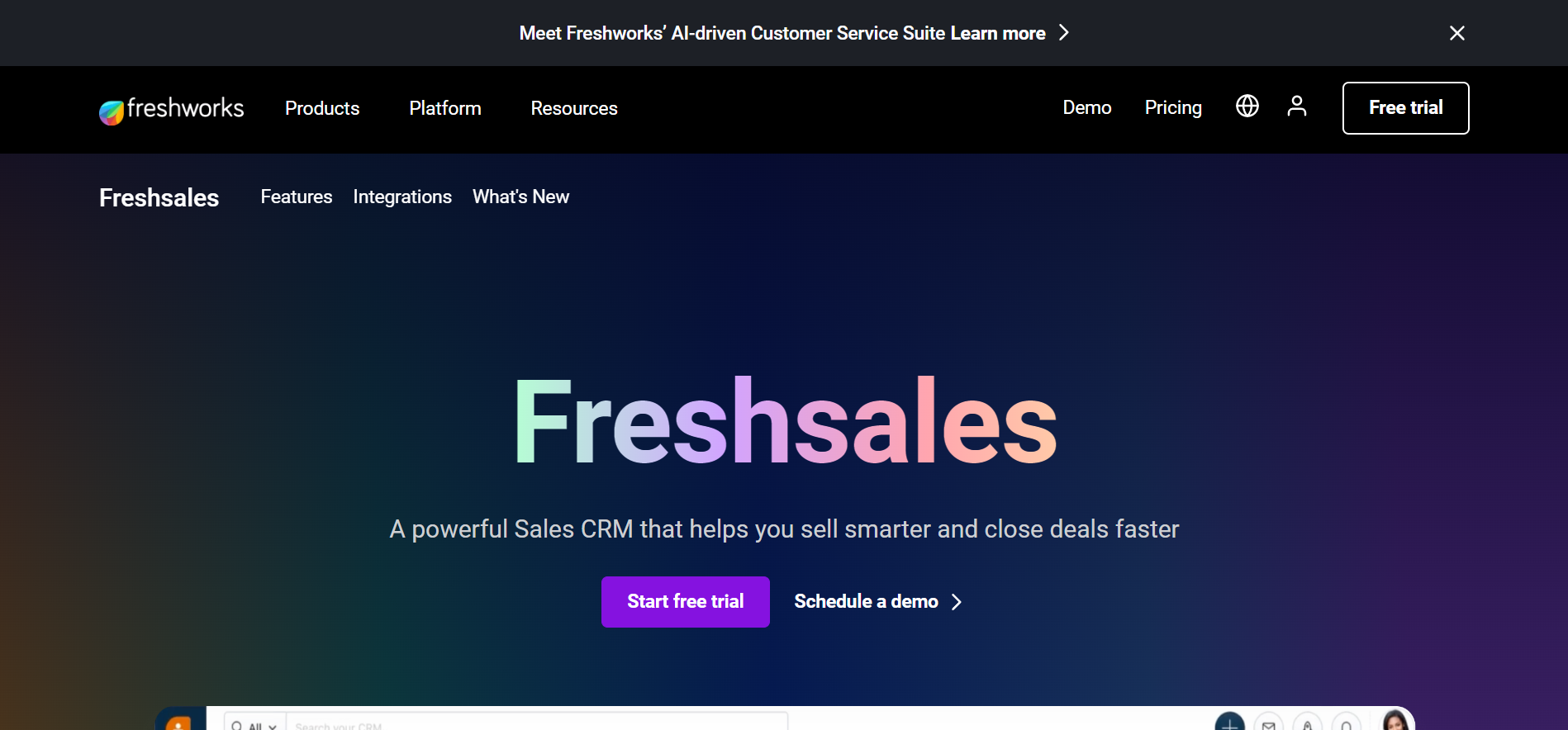
Every CRM has its features and functionalities; some come up with complicated functionalities and unforgiving learning curves. But Freshsales kept their difficulty level low to make it convenient.
Once you are done with the onboarding process, you can add tasks, add leads, and make appointments immediately. Freshsales also explains everything about the process so that you can run your business smoothly.
Features
- AI feature called “Freddy” for identifying priority contacts and suggesting follow-ups
- Freddy can be installed as a website chatbot for customer support and appointments
- Document handling and product tracking capabilities
- Integration with telephone and chat services
- Ability to expand features with Freshworks’ software for marketing and customer service
- Integration with Zapier for seamless data transfer.
Pricing
The growth plan starts at just $18 per month, the pro plan goes to $47 per month, and the enterprise plan goes to $83 per month.
Pros
- AI capabilities with “Freddy” for priority contact identification and follow-up suggestions
- Versatile features, including document handling, product tracking, and chat integration
- Expansion options with Freshworks’ software for marketing and customer service
- Integration with Zapier for data transfer
Cons
- Learning curve for new users
- Limited customization options
- Mobile app experience might be less robust
Conclusion
In conclusion, choosing the best CRM for small businesses is crucial to streamlining the entire process. The CRMs mentioned above have unique features and can improve customer relationships in your business.
Each offers a unique blend of features, pricing models, and user-friendliness. Ultimately, the choice depends on the small business’s specific requirements and budget constraints.
